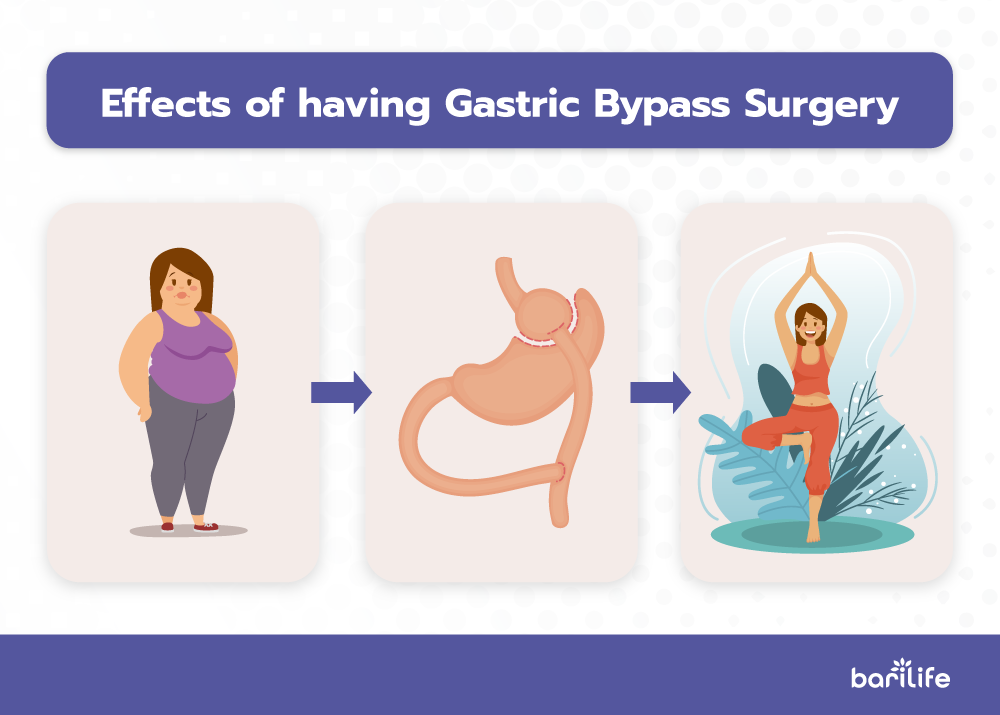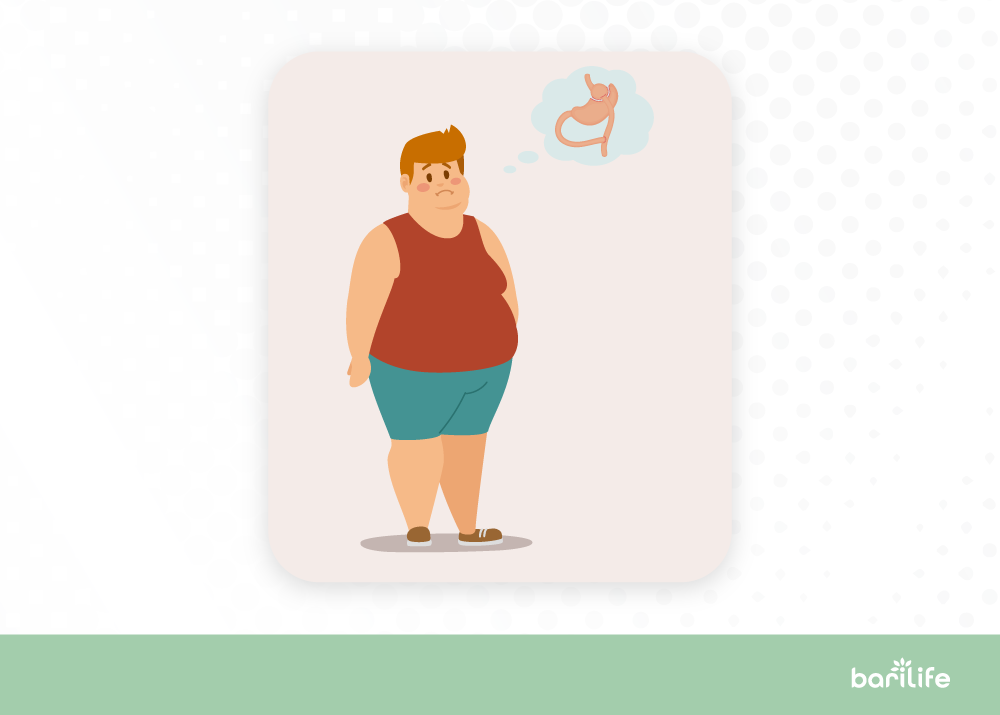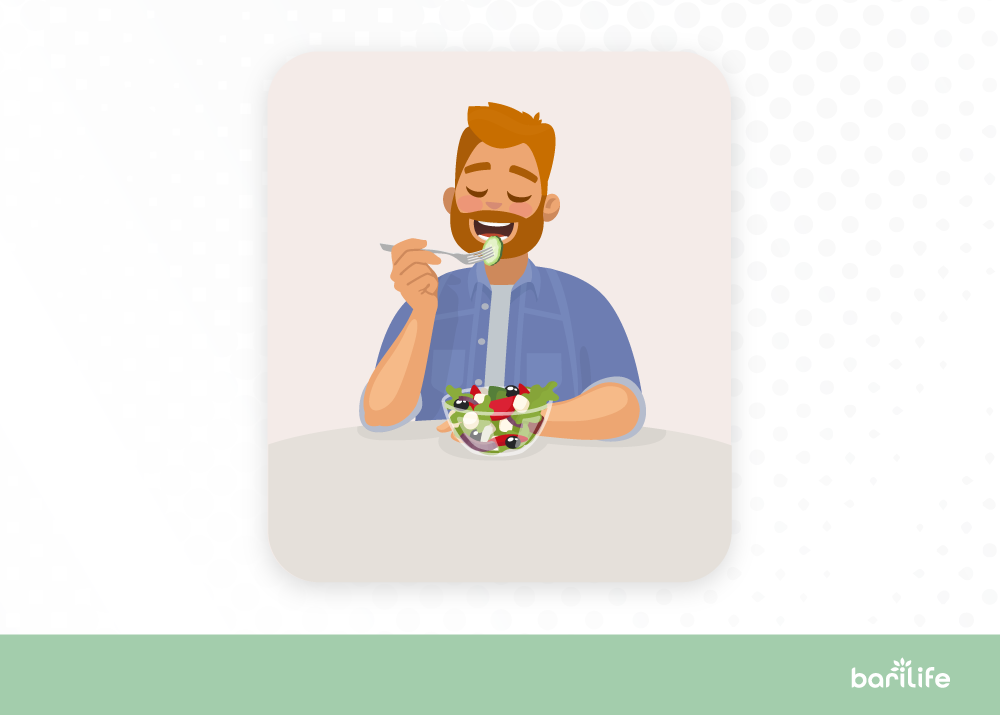As with any surgery, there are pros and cons to having gastric bypass surgery. Post-operative pain is a something that is very likely to occur in most patients. Every patient experiences different levels of pain, and some tolerate pain better than others. It’s essential to work closely with your surgeon to manage the discomfort after gastric bypass. Some patients experience mild to moderate pain, while others have more severe pain.
Your surgeon will prescribe you multiple medications after your surgery. One of these medications will likely be a pain medication. Pain medications can decrease post-operative discomfort and improve recovery outcomes.
There are several different pain-relieving medications, some of which are not recommended after gastric bypass surgery. Keep reading to learn about the different types of pain medication, which ones are best suited for patients who have had gastric bypass, and which medications to avoid.
What is gastric bypass?
Gastric bypass, or Roux-en-Y gastric bypass (RYGB), is one of several weight loss surgery techniques. It is recommended for patients who have been unable to lose weight using conservative methods such as diet and exercise.
Gastric bypass decreases the size of the stomach so it cannot hold as much food or liquid. The small intestine is divided to separate the upper and lower parts, known as the duodenum and the jejunum. The new stomach pouch is attached to the lower portion of the small intestine, or jejunum, while the upper portion of the small intestine, or duodenum, is connected further down the small intestine.

Two new connections are made during this procedure. One from the new stomach to the lower small intestine, and another from the upper small intestine to the lower small intestine.
Gastric bypass can result in successful weight loss for several reasons. Like other bariatric surgeries, the newly created stomach is smaller and cannot hold as much food or liquid, which means less calories can be consumed.
Also, the food does not travel through the first part of the small bowel. This decreases absorption. This decrease in absorption can also impact the way medications work in the body.
Additionally, the surgery affects hormone levels that regulate hunger and fullness and helps the body to reach and maintain a healthy weight.
Considerations after bariatric surgery
Due to the changes made to the digestive system, bariatric surgeries affect digestion and absorption. Some medications require stomach acid to be absorbed, but acid in the stomach significantly decreases after bariatric surgery. This can play a role in determining which pain medication is right for you. Medications should only be taken when prescribed or recommended by your healthcare provider.

Pain following gastric bypass surgery can be managed with both opioid and non-opioid medications. Stronger pain medications, like opioids, are usually prescribed for use immediately after surgery and then down-graded to lower strength medications.
Opioid pain medication
Opioids come with several adverse side effects, as well as risk for addiction. They should be reserved for severe pain that is not well-controlled by non-opioid pain medication. It is recommended that opioids be used conservatively due to their side effects and addictive properties.

Commonly prescribed opioids include:
- Hydrocodone
- Morphine
- Oxycodone
Combinations between non-opioid and opioid medications include:
- Codeine with Acetaminophen
- Oxycodone with Acetaminophen
Side effects of opioid medications can include:
- Nausea
- Constipation
- Dizziness
- Large doses may abnormally effect breathing
- Long term use can lead to addiction
Patients with severe obesity are more likely to experience high levels of chronic pain before having bariatric surgery. Some patients may already be using opioid pain medications before having gastric bypass.
Evidence suggests that even though pain levels and medication use is lower after bariatric surgery, opioid use not only continues but increases for a significant number of patients.
Although opioid pain medications are considered safe and effective for gastric bypass patients, it is not the first choice for treatment of post-operative pain due to the potential for long-term use and addiction.
Non-opioid pain medication
Non-opioid pain medications are preferred for controlling mild to moderate pain. One recent study showed that a combination of celecoxib (Celebrex) and acetaminophen (Tylenol) administered for pain control effectively controlled pain after gastric bypass. Opioids were used only as needed for breakthrough pain. Breakthrough pain describes severe pain that comes on suddenly in people who are taking medicines that usually keep their pain under control.
The study found that using a combination of the non-opioid medications celecoxib and acetaminophen adequately controlled pain while reducing the use of opioid medications. It also seemed to reduce the length of the hospital stay in patients who had gastric bypass.
If you and your doctor can manage your pain with non-opioid medications, this is the preferred method of treatment. Always consult with your doctor before starting or stopping any medications.
Pain medications to avoid after gastric bypass
Non-steroidal anti-inflammatory (NSAID) drugs are commonly used to treat pain, fever, and inflammation. However, NSAIDs are not safe for managing pain after gastric bypass.
You should avoid taking any non-steroidal anti-inflammatory (NSAID) drugs unless your physician tells you otherwise. NSAIDs are not recommended for gastric bypass patients as they may increase the risk for development of stomach ulcers, perforations, and leaks in the gastrointestinal tract.
Stomach ulcers are more difficult to diagnose and treat in the post-operative period following gastric bypass, so you should avoid taking anything that may increase your risk of developing them, unless directed by your surgeon.
NSAIDs include:
- Ibuprofen (Advil, Motrin)
- Naproxen (Aleve)
- Celecoxib (Celebrex)
- Asprin (Bayer)
Other medications after gastric bypass
After gastric bypass surgery, your doctor might restart you on medications that you take to manage any chronic conditions you have such as high blood pressure, diabetes, or high cholesterol. Due to impaired absorption caused by functional changes to the digestive tract, your doses may need to be adjusted. These changes will be determined by your doctor.
Your doctor may also prescribe a proton-pump inhibitor (PPI) to decrease stomach acid to help prevent stomach ulcers.
Crushed or liquid-rapid release medications may be recommended to help with absorption immediately post-operation. Do not crush your medications unless recommended by your physician.
Vitamins and minerals
Following your gastric bypass surgery, you will also need to take a daily multivitamin. Due to decreased absorption resulting from the altered gastrointestinal tract, your body will have difficulty absorbing the vitamins and minerals you consume from food. This is why your doctor will recommend a daily multivitamin to be taken long-term.
Conclusion
As with any surgery, pain following gastric bypass surgery is not uncommon. Your doctor can prescribe you medications to help manage your pain. This may be a non-opioid or opioid pain medication. Some medications, like NSAIDs, are not recommended for patients who have had gastric bypass. That’s why it’s best not to take any medications unless recommended by your doctor.





What are your tips and tricks to post-bariatric success?